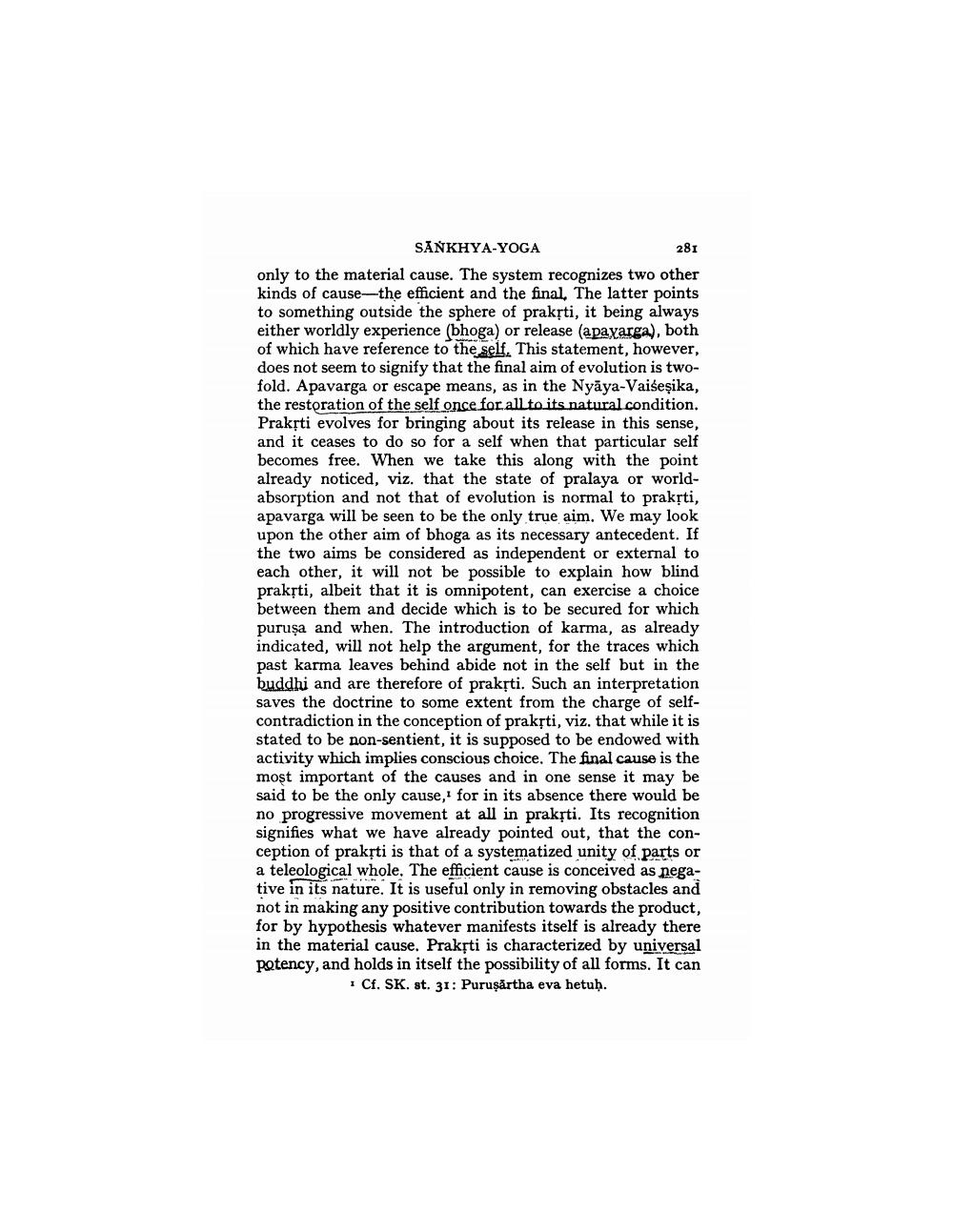________________
SANKHYA-YOGA
281 only to the material cause. The system recognizes two other kinds of cause--the efficient and the final. The latter points to something outside the sphere of praksti, it being always either worldly experience (bhoga) or release (apaxarga), both of which have reference to the self. This statement, however, does not seem to signify that the final aim of evolution is twofold. Apavarga or escape means, as in the Nyāya-Vaišeşika, the restoration of the self once for all to its natural condition. Praksti evolves for bringing about its release in this sense, and it ceases to do so for a self when that particular self becomes free. When we take this along with the point already noticed, viz. that the state of pralaya or worldabsorption and not that of evolution is normal to praksti, apavarga will be seen to be the only true aim. We may look upon the other aim of bhoga as its necessary antecedent. If the two aims be considered as independent or external to each other, it will not be possible to explain how blind praksti, albeit that it is omnipotent, can exercise a choice between them and decide which is to be secured for which puruşa and when. The introduction of karma, as already indicated, will not help the argument, for the traces which past karma leaves behind abide not in the self but in the buddhi and are therefore of praksti. Such an interpretation saves the doctrine to some extent from the charge of selfcontradiction in the conception of praksti, viz. that while it is stated to be non-sentient, it is supposed to be endowed with activity which implies conscious choice. The final cause is the most important of the causes and in one sense it may be said to be the only cause, for in its absence there would be no progressive movement at all in prakşti. Its recognition signifies what we have already pointed out, that the conception of praksti is that of a systematized unity of parts or a teleological whole. The efficient cause is conceived as negative in its nature. It is useful only in removing obstacles and not in making any positive contribution towards the product, for by hypothesis whatever manifests itself is already there in the material cause. Praksti is characterized by universal potency, and holds in itself the possibility of all forms. It can
1 Cf. SK. st. 31: Puruşărtha eva hetuḥ.




